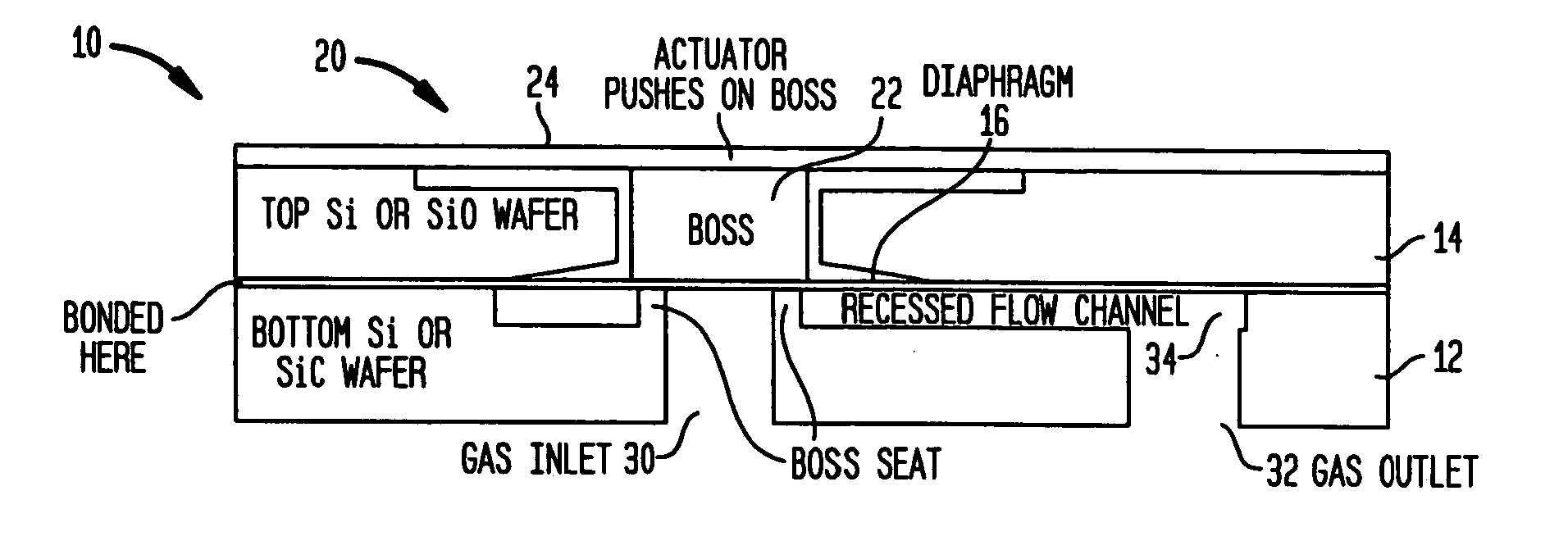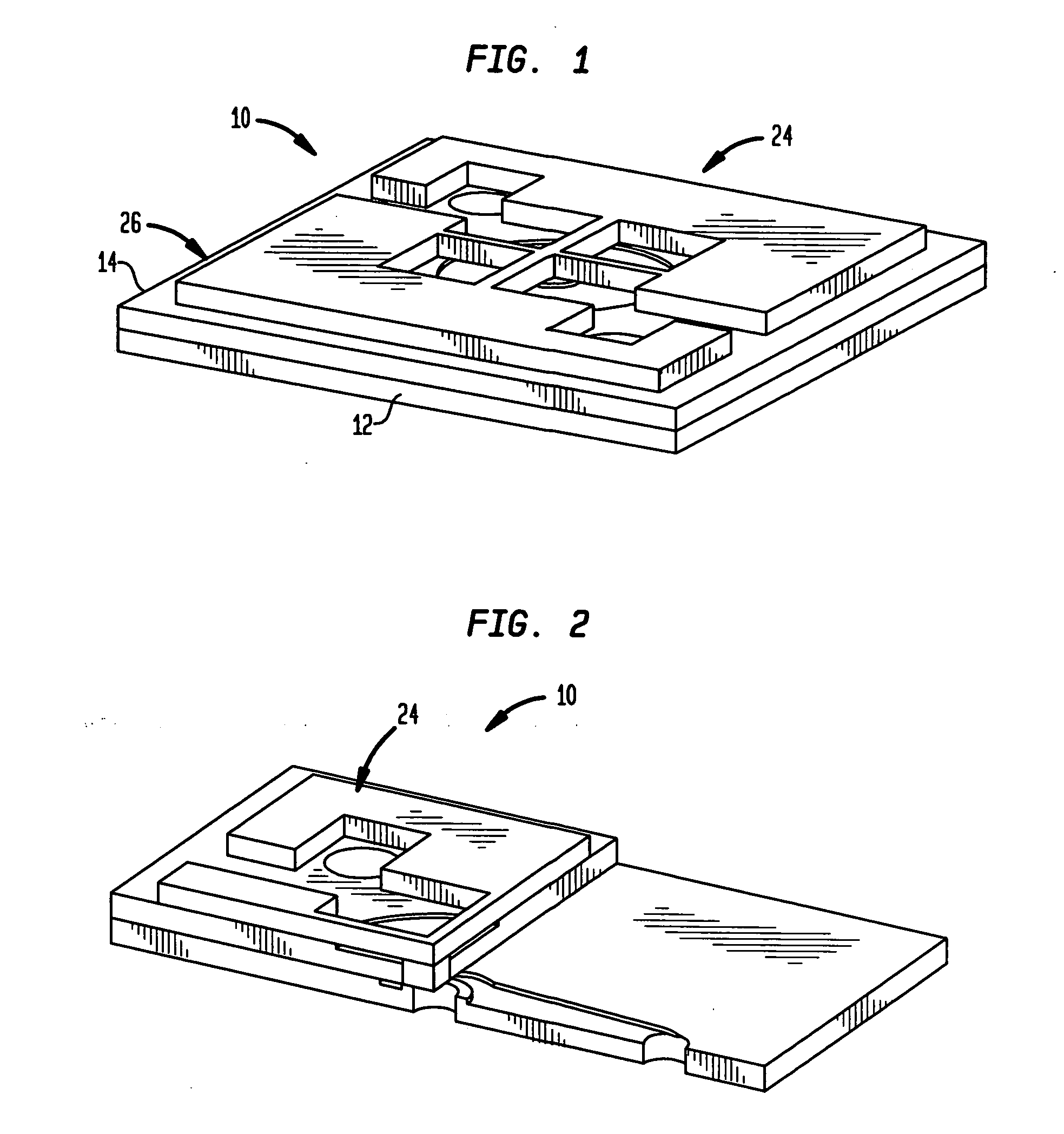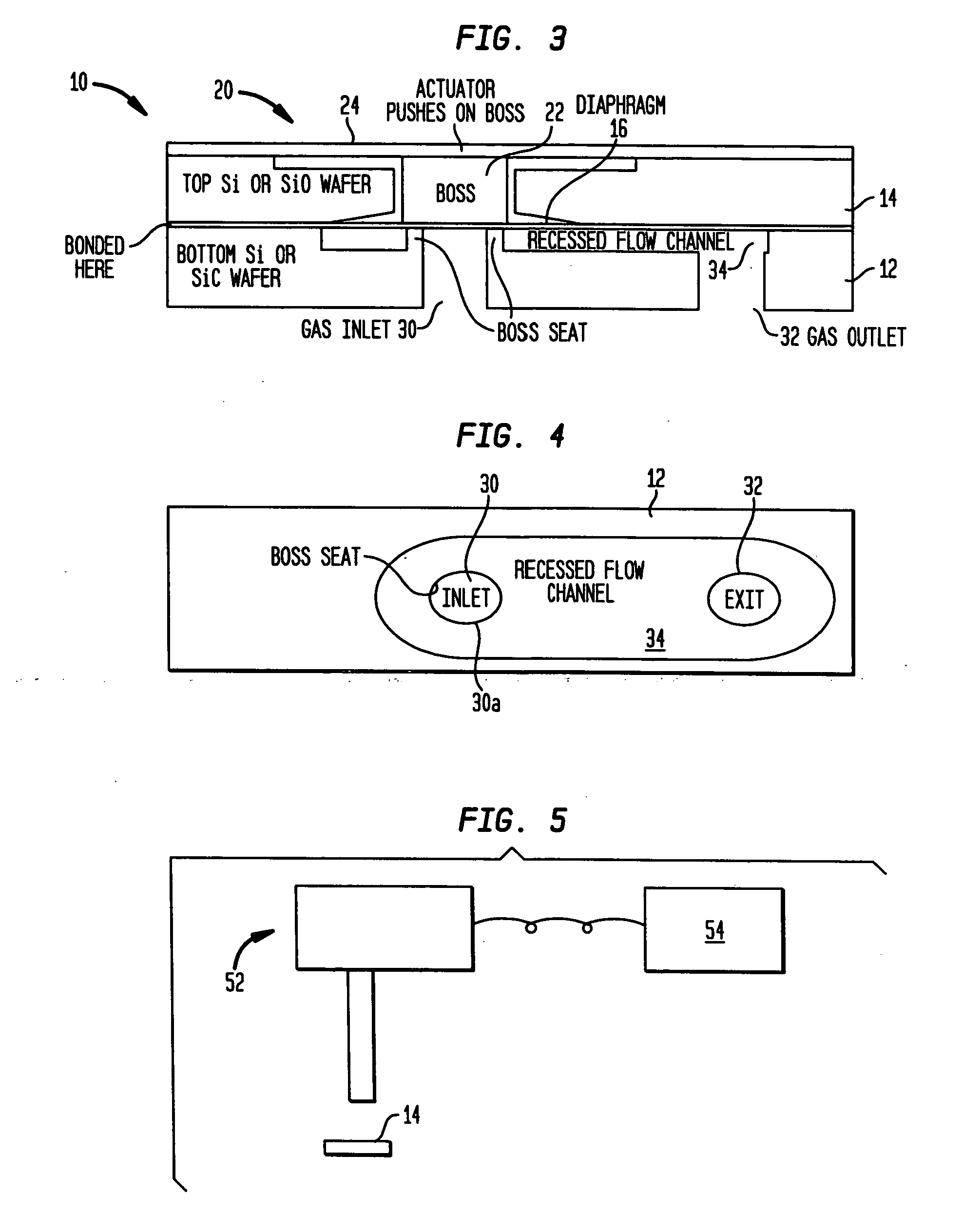Method for protecting the diaphragm and extending the life of sic and/or si MEMS microvalves
a technology of micro-valves and diaphragms, which is applied in the direction of valve housings, valve operating devices/release devices, mechanical equipment, etc., can solve the problems of difficult shaping of the cavity or recess in any particular way, significant localized forces or stresses on the diaphragm, and inability to create contoured shapes. , to achieve the effect of reducing stress concentration
- Summary
- Abstract
- Description
- Claims
- Application Information
AI Technical Summary
Benefits of technology
Problems solved by technology
Method used
Image
Examples
Embodiment Construction
[0022]FIGS. 1-4 show a microvalve 10 generally comprising first and second layers 12 and 14, diaphragm member 16, and switching means 20. Switching means 20, in turn, includes boss 22 and actuation mechanism 24.
[0023] Generally, each of the layers 12 and 14 has a flat thin shape, and the layers are secured together to form a plate or valve body 26. This valve body forms an inlet opening 30 for receiving fluid, an outlet opening 32 for conducting fluid from the valve body, and a flow channel 34 for conducting fluid from the inlet to the outlet. The diaphragm 16 is disposed between the layers 12 and 14, and is moveable between open and closed positions. In the closed position, the diaphragm 16 blocks the flow of fluid from the inlet 30 to the flow channel 34; and in the open position, the diaphragm allows fluid flow from the inlet into that flow channel, allowing fluid flow from the inlet to the outlet 32 of the microvalve. The diaphragm 16 is biased to the closed position, and moves...
PUM
| Property | Measurement | Unit |
|---|---|---|
| Length | aaaaa | aaaaa |
| Length | aaaaa | aaaaa |
| Area | aaaaa | aaaaa |
Abstract
Description
Claims
Application Information
 Login to View More
Login to View More - R&D
- Intellectual Property
- Life Sciences
- Materials
- Tech Scout
- Unparalleled Data Quality
- Higher Quality Content
- 60% Fewer Hallucinations
Browse by: Latest US Patents, China's latest patents, Technical Efficacy Thesaurus, Application Domain, Technology Topic, Popular Technical Reports.
© 2025 PatSnap. All rights reserved.Legal|Privacy policy|Modern Slavery Act Transparency Statement|Sitemap|About US| Contact US: help@patsnap.com



